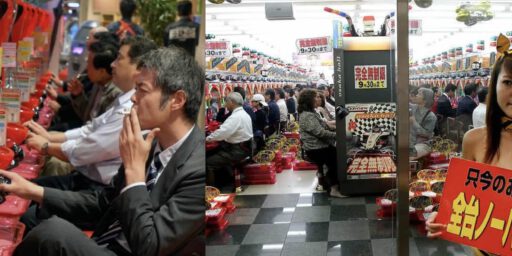水商売 Mizu-shobai
In Japanese culture, Mizu-shōbai (Japanese: 水商売), literally the water trade, is work that does not provide a contractually fixed salary, but instead relies on the popularity of the performer among their fans or clientele. Broadly, it includes the television, theater, and movie industries, but more narrowly, it can refer to those who work in businesses that serve alcohol or provide sex. Bars, cabarets, health, hostess bars, image clubs, pink salons and soaplands are all part of the mizu shōbai; though they are not sex workers, geisha and kabuki actors are traditionally considered part of the mizu shōbai as well.
水商売(みずしょうばい)とは、利用者の遊興を目的とし、客のひいきによって成り立つ盛衰の激しい商売。例として、待合・貸座敷・料理店・バーなど酒場・キャバレーなどに客からの人気によって収入が大きく上下する商売。水稼業とも言われる。似た言葉である夜職の場合は、キャバクラやホストクラブのような接待飲食店から、風俗店に至るまで含む。夜職の対義語は昼職。水商売の由来は江戸時代の「水茶屋」に起因する。なお日雇い労働者、農家、漁師などは遊興と無関係な職は、水商売に含まない。現在では夜職と同じ意味で使われている。
「水商売」と表される業種は、飲食業や花柳界、性風俗業のような業種のほかに、相撲や歌舞伎、演劇などの興行ものや人気商売(芸能人、スポーツ選手など)、作家、クリエイター、インフルエンサー、YouTuberといったものを含む言葉。夜間営業で酒を出す飲食店(主にバーや接待クラブ)や風俗営業、ホスト・ホステス、風俗嬢などに限定して指す接待飲食等営業の場合は「お水」とも呼ばれている。
